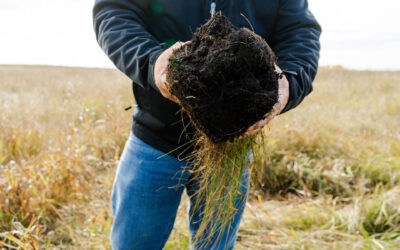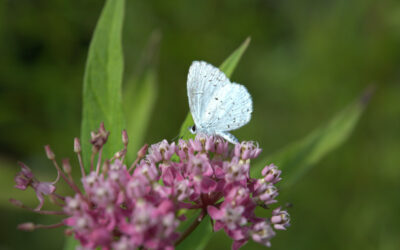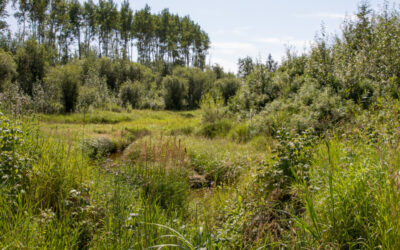Ecosystem services are among the most valuable commodities produced by ALUS participants Garry and Lynn Richards on their Saskatchewan family farm.
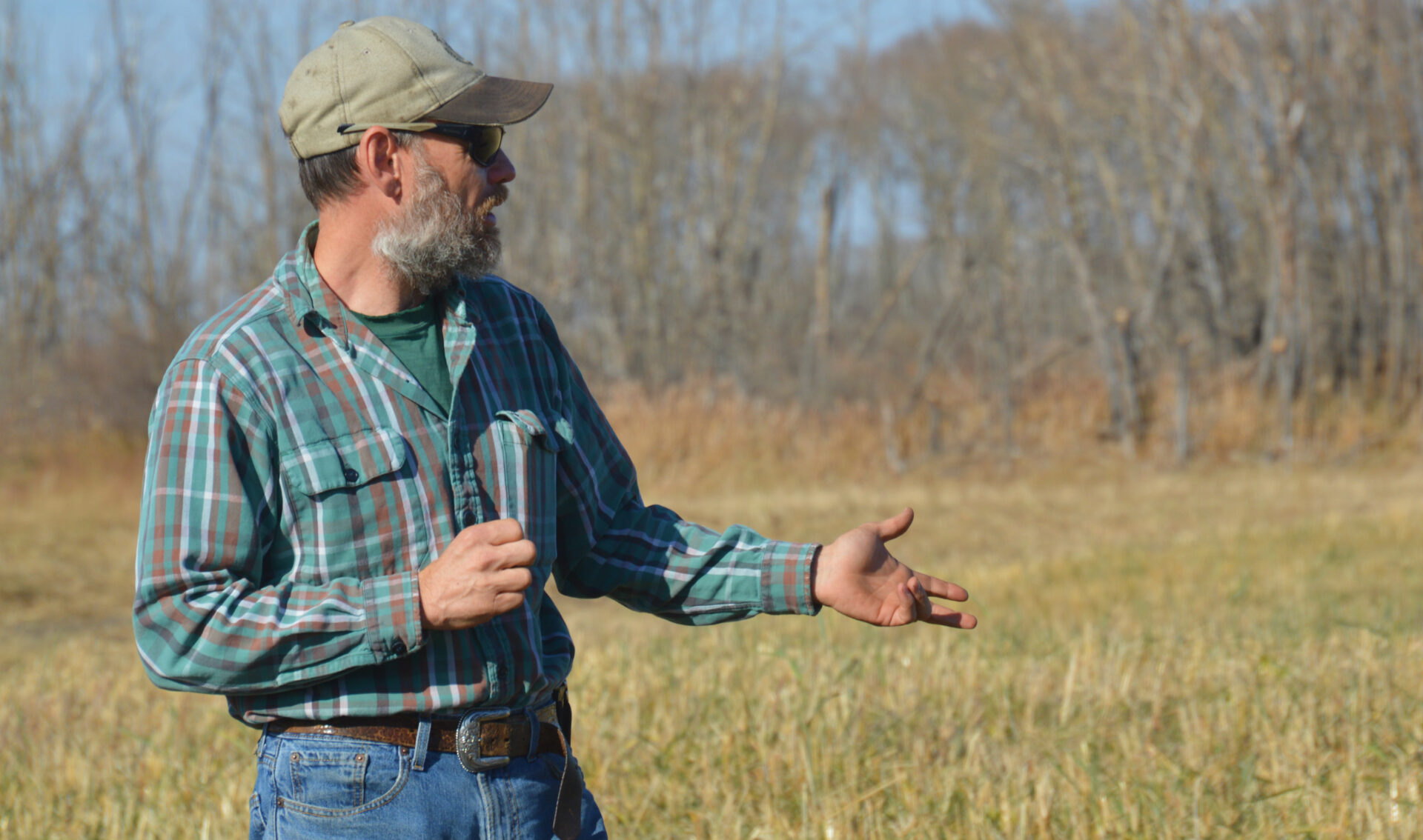
“ALUS was a natural fit for our holistic, whole-farm approach,” says ALUS participant Garry Richards, who manages many ALUS projects on his 4,200-acre family farm in Saskatchewan to protect wetlands, improve wildlife habitat and improve soil health.
ALUS participants Garry and Lynn Richards produce important ecosystem services on their 4,200-acre farm, with help from the ALUS Saskatchewan Assiniboine Project (ASAP).
Richards’ forebears homesteaded this land, near Bangor, Saskatchewan, 115 years ago. The current generation of the Richards family, Garry and Lynn, grow mixed crops and run 1,000 head of cattle using holistic management techniques, such as mob grazing and cover cropping.
“We manage a 4,200-acre block of land as a small ecosystem,” said Garry, adding that, since 2017, the ALUS program has allowed them to take their farming philosophy one step further.
Through ASAP, the Richards have enhanced over 30 acres of wetlands, improved 10 acres of wildlife habitat and planted 60 acres of deep-rooted grasses, projects which they actively manage and maintain every year as ALUS participants.
These ALUS projects produce multiple ecosystem services, including wildlife and pollinator habitat, water filtration, carbon sequestration and flood mitigation, benefiting not only the Richards family farm, but all of society.
“ALUS was a natural fit for our holistic, whole-farm approach,” said Garry. “By treating nature as an ally, we can improve soil health on our farm and also produce ecosystem services that benefit the wider community.”
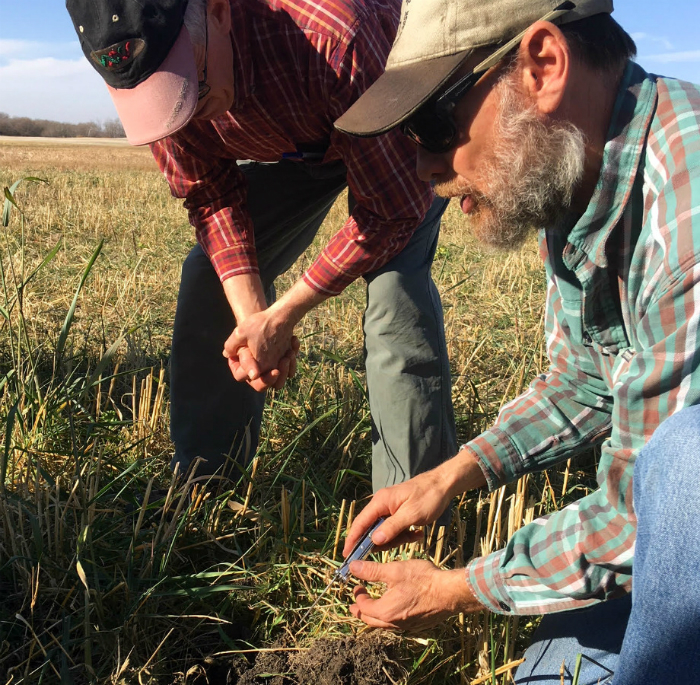
Garry Richards (right) gives Manitoba’s ALUS Little Saskatchewan River PAC member Gord Hammell (left) a closer look at ALUS on the ground. This ALUS project produces wildlife and pollinator habitat, water filtration, carbon sequestration, flood mitigation and more ecosystem services that benefit the wider community.
Garry and Lynn previously worked as a pharmacist and nurse, respectively, but in 2000, they decided to pursue their passion for farming and the environment by returning to the Richards family farm, with the goal of managing their farm business without the need for additional, off-farm income.
Garry and Lynn are an important part of the network of ALUS change-makers, working together to sustain agriculture, wildlife and natural spaces for all Canadians. Going forward, the Richards family intend to continue to grow their knowledge of better farming practices while managing their ALUS projects to best produce ecosystem services.
They also plan to keep contributing to their ALUS community. For instance, Garry frequently shares his farming experience and expertise through tours of his property, including an ALUS field conference he hosted in collaboration with ASAP in fall of 2017.
The ALUS Saskatchewan Assiniboine Project (ASAP) is a Saskatchewan-based ALUS community that began in 2015 as a partnership between ALUS Canada and two organizations: the Assiniboine Watershed Stewardship Association (AWSA), an independent, non-profit organization that is dedicated to protecting and enhancing source water in the Assiniboine River Watershed, and the Saskatchewan Farm Stewardship Association (SaskFSA), an organization dedicated to ensuring that farmers can optimize efficiency in an environmentally acceptable and sustainable manner.
This ALUS community is led by Program Coordinator Jesse Nielsen, from Yorkton, Saskatchewan.
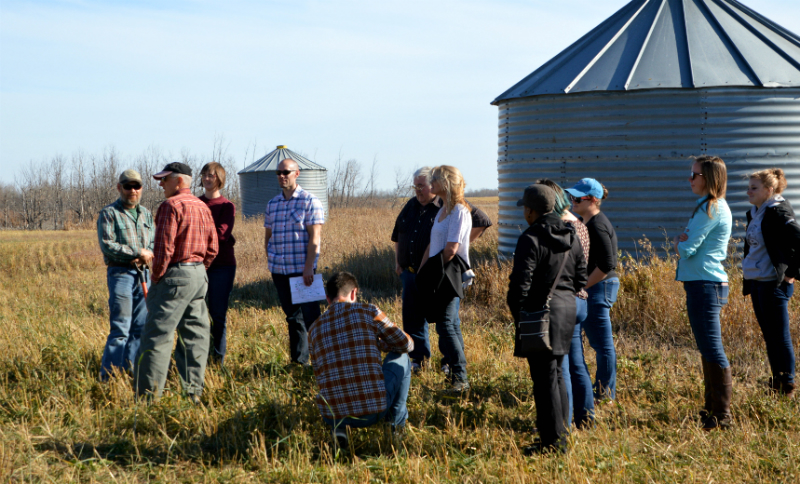
ALUS Saskatchewan Assiniboine Project (ASAP) participant Garry Richards shares his expertise through frequent tours of his property, such as this fall 2017 visit with ALUS staffers from across Canada.

